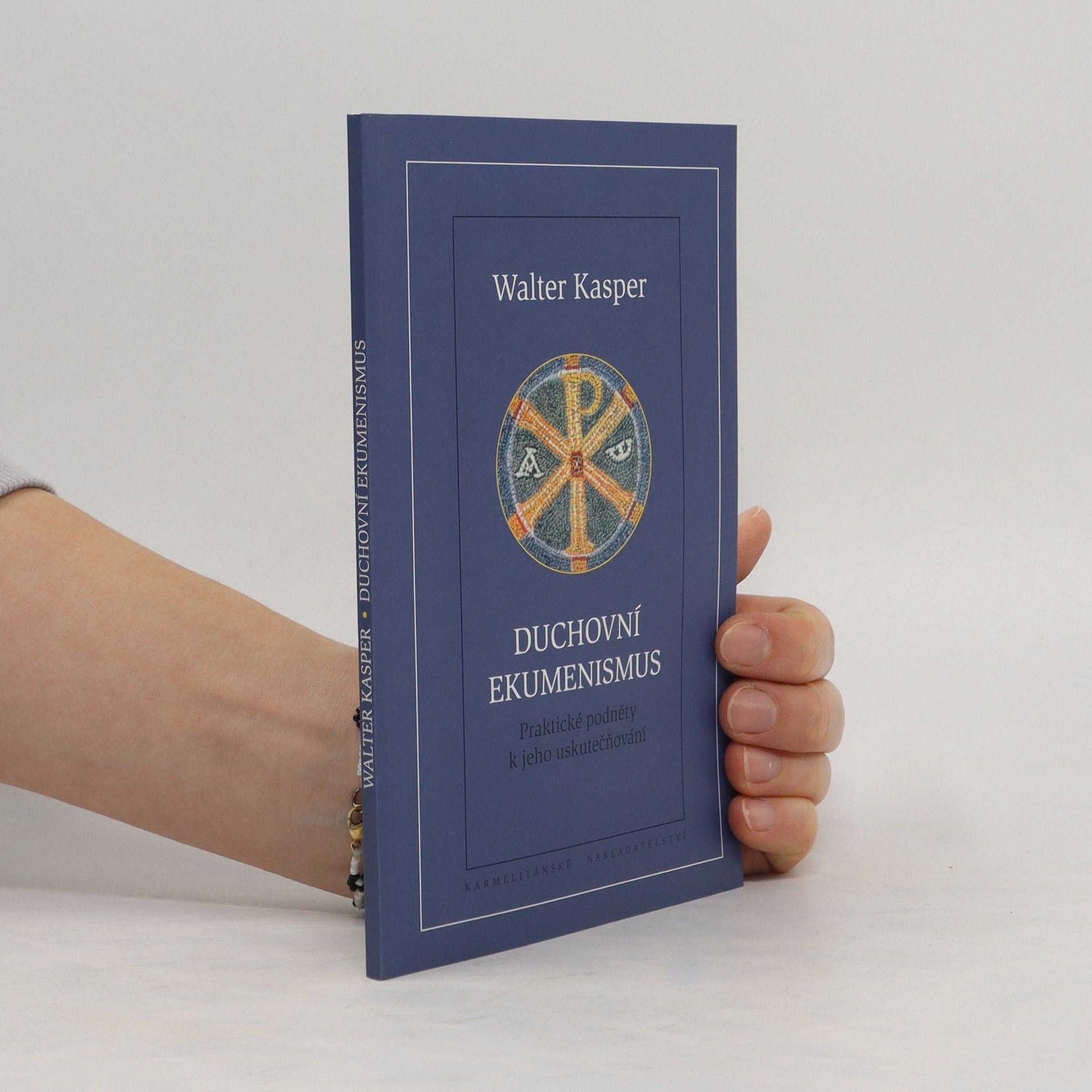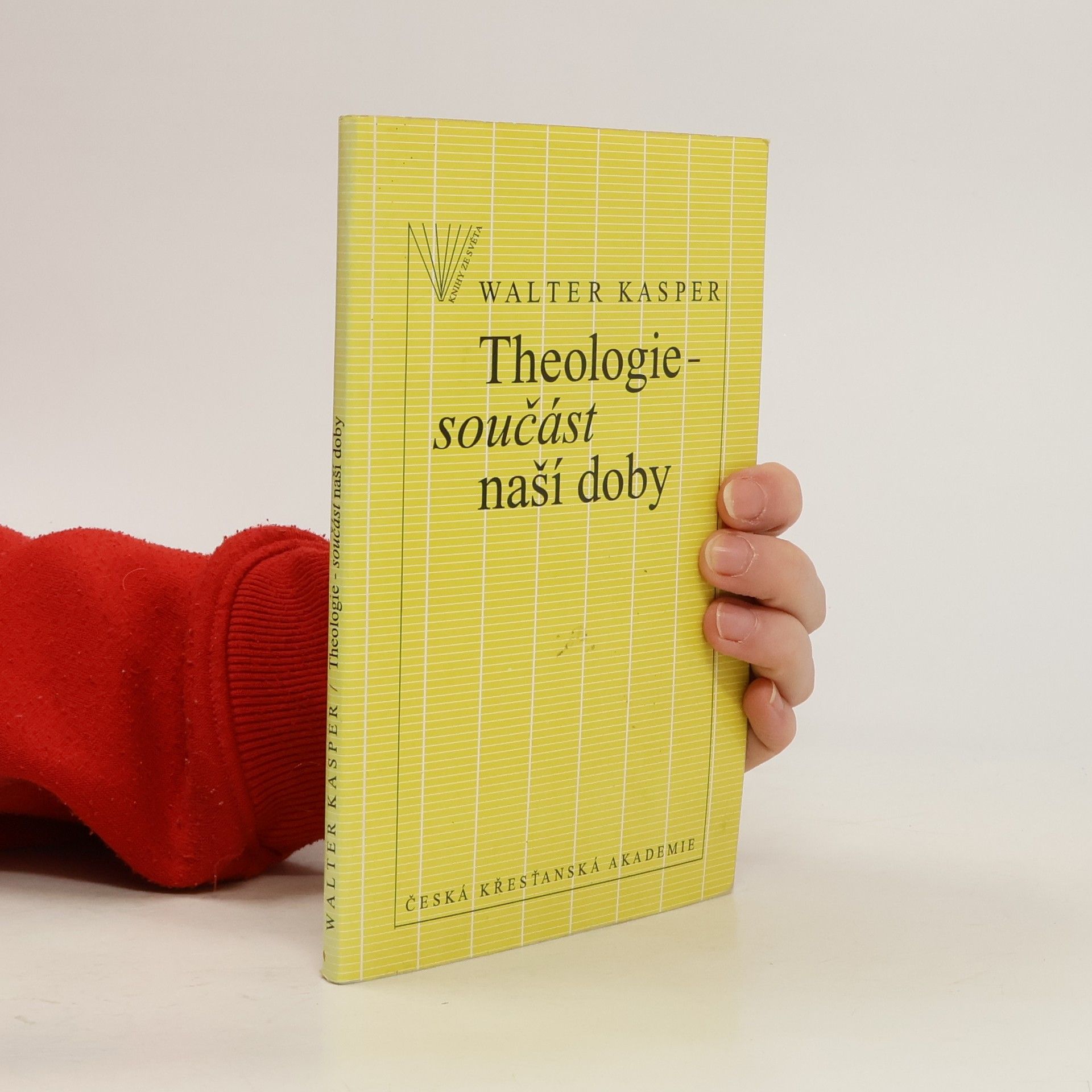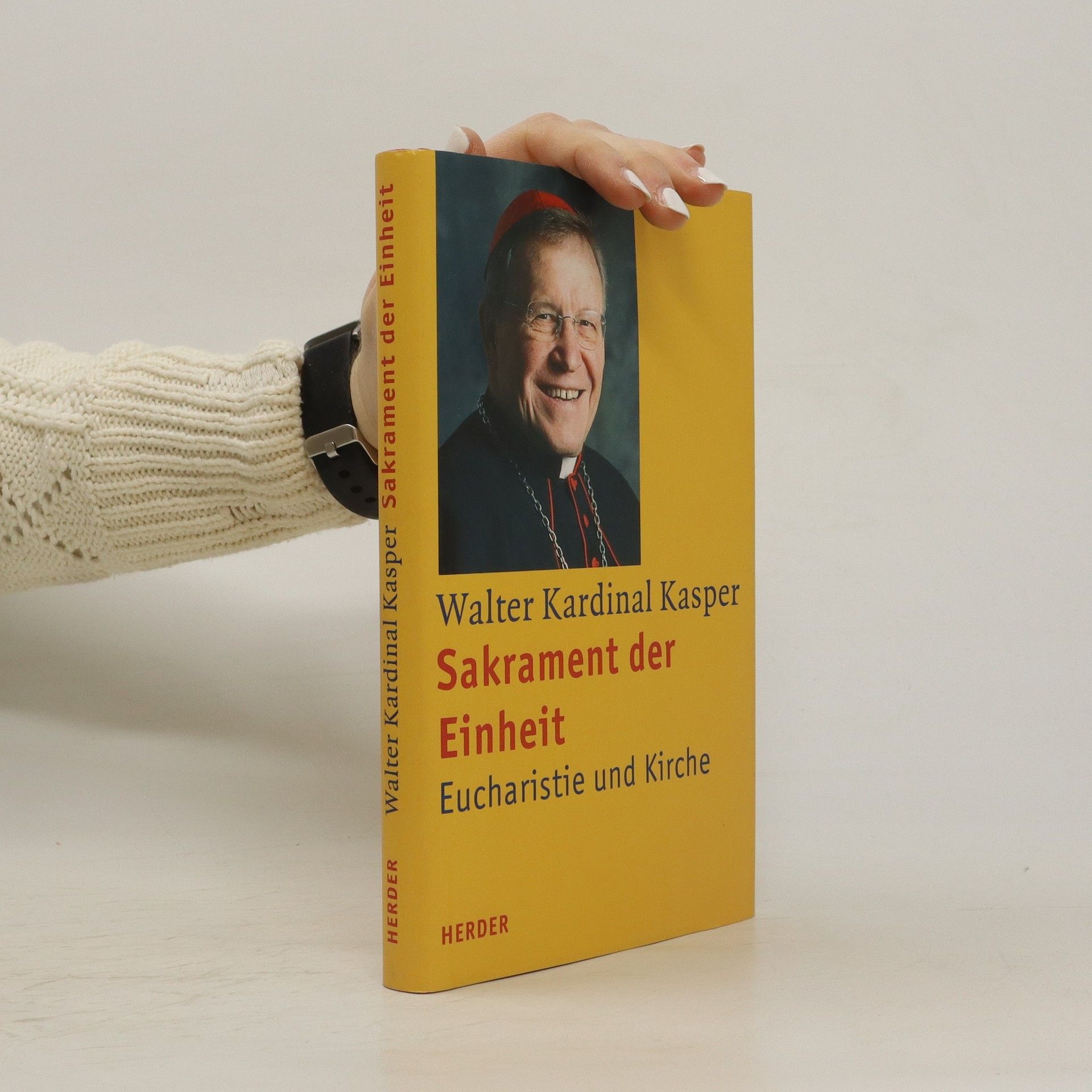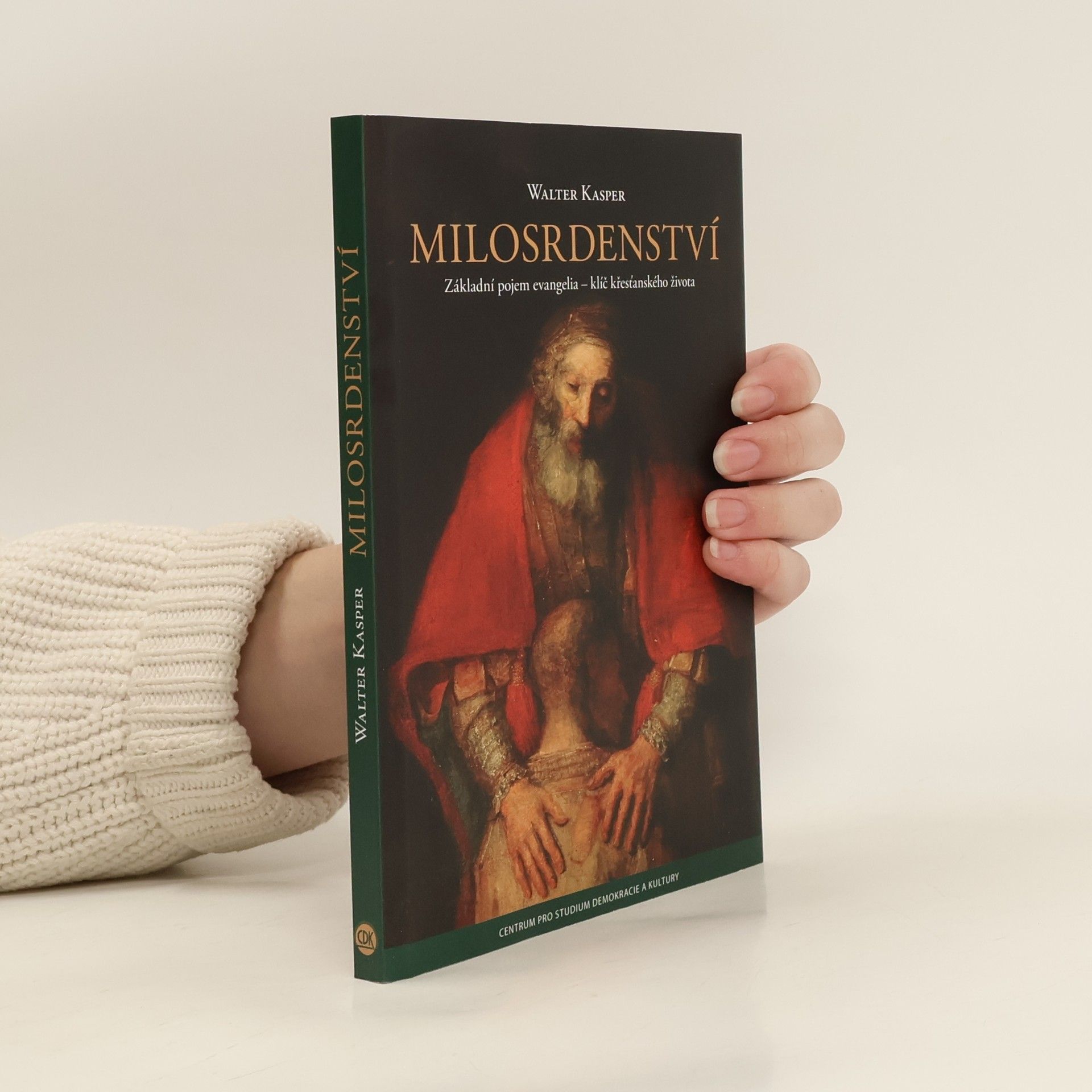Nové vydání útlého, ale podstatného díla světoznámého německého teologa a kardinála, které v originále vyšlo poprvé v roce 1972, jeho dnes již nedostupný český překlad vydala Křesťanská akademie Řím r. 1987. Kniha v přepracované podobě podává deset přednášek, které byly určeny kněžím působícím v duchovní správě, učitelům náboženství, katechetům a studentům, a které je uváděly do základních problémů systematické teologie. Autor přitom zvolil za své východisko téma víry. Snaží se tedy vymezit její situaci a místo, představuje Ježíše Krista jako svědka víry, zkoumá pravdivost, úkon, obsah, spásný význam, církevnost, dějinnost a budoucnost víry. Každá kapitola je doplněna bohatým poznámkovým aparátem. V česky dostupné teologické literatuře nemá toto dílo obdobu.
Walter Kasper Libri
Walter Kasper è un teologo cattolico romano tedesco. Il suo lavoro si concentra su una profonda comprensione della fede cristiana e delle relazioni interecclesiali. Esplora concetti teologici con l'obiettivo di promuovere l'unità cristiana. Le sue intuizioni offrono profonde prospettive sulla teologia contemporanea.







Přední německý teolog, biskup v Rottenburgu Stuttgartu, se v několika studiích dotýká postavení i úkolů katolické teologie v moderním světě, zejména ve vztahu k církvi.
Duchovní ekumenismus
- 86pagine
- 4 ore di lettura
Praktické podněty k jeho uskutečňování. Dokument, jehož autorem je významný teolog a předseda Papežské rady pro jednotu křesťanů kardinál Walter Kasper, je svým obsahem i účelem mimořádným počinem. Knížka Duchovní ekumenismus se nezaměřuje na věroučné rozdíly, ale na duchovní kořeny ekumenického úsilí. Opírá se o Písmo, o křesťanskou tradici i o impulsy, které dal ekumenickému úsilí 2. vatikánský koncil a papež Jan Pavel II. Má praktický ráz a zaměřuje se hlavně na to, co mohou křesťané různých konfesí už nyní dělat společně. Je rozčleněna do tří hlavních částí. V první zaměřujeme pozornost na prohloubení víry prostřednictvím naslouchání Božímu slovu a velkým svědkům víry. Druhá část se zabývá modlitbou a každodenní liturgickou praxí během církevního roku. V třetí části se dostáváme ke službě a svědectví křesťanů, tedy k samotné praxi uvnitř církevních společenství a k tomu, kde a jak ekumenismus uskutečňovat.
Přístupně napsaná práce předního současného teologa, filosofa a biblisty patří stále k aktuálním studiím v oboru dogmatiky.
Ein engagiertes Pläsoyer für ein zeitgemäßes Kirchenverständnis, das die Realität ernst nimmt. Eine Ermutigung, gemeinsam Kirche zu sein, in ihr zu leben und sie zu lieben.(Klappentext)
Martin Luther : ekumenická perspektiva
- 96pagine
- 4 ore di lettura
Ekumenická perspektiva Na rok 2017 připadá 500. výročí reformace. Úvodem k tomuto jubileu bylo již ekumenické shromáždění ve švédském Lundu 31. října 2016. Účastnili se ho představitelé Světového luterského svazu společně s papežem Františkem. Tím bylo symbolicky naznačeno, že křesťanstvo právem očekává další pokrok ve sblížení křesťanských církví. Tomu věnoval svou přehlednou studii významný současný katolický teolog a blízký papežův spolupracovník kardinál Walter Kasper. Přesvědčivě v ní ukazuje, že to, co křesťanské církve na základě křtu Ježíše Krista spojuje, převažuje nad tím, co je rozděluje, a z toho, co je ještě dělí, se mohou vzájemně učit, a tak pokročit k plnému dosažení jednoty v duchu Kristova odkazu.
2017 wird der 500. Jahrestag der Reformation gefeiert, beginnend mit einer ökumenischen Veranstaltung am 31. Oktober 2016 in Lund, an der Papst Franziskus und Vertreter des Lutherischen Weltbundes teilnehmen. Walter Kasper betont, dass viele Christen hoffen, dass dieses Gedenken die ökumenische Einheit fördert und diese Erwartungen nicht enttäuscht werden dürfen. In seinem Essay über Martin Luther fordert Kasper dazu auf, Luther von den verschiedenen Interessen und Deutungen früherer Jubiläen zu befreien. Luthers Welt und seine Botschaft, die in einer Zeit des Umbruchs zwischen Mittelalter und Neuzeit entstanden, erscheinen modernen Menschen zunächst fremd. Doch wenn man dem „fremden Luther“ zuhört, wird deutlich, wie relevant seine Botschaft für alle Christen ist und welche Verbindung zu Papst Franziskus und dessen Engagement für Barmherzigkeit besteht. Kasper hebt hervor, dass die Botschaft von Gottes Barmherzigkeit Luthers Antwort auf persönliche und zeitgenössische Fragen war und auch heute als Antwort auf die Herausforderungen unserer Zeit dient. Das Buch basiert auf einem Vortrag, den der Autor 2016 an der Humboldt-Universität zu Berlin hielt.
Sakrament der Einheit
- 157pagine
- 6 ore di lettura
Aktuell zum Eucharistischen Jahr! Die Eucharistie, das Testament Jesu Christi, feiern Christen noch immer getrennt. Umso wichtiger sind die beharrlichen Zwischenschritte der Ökumene, die in die Gemeinschaft in der Eucharistie, dem Sakrament der Einheit, münden sollen. Als Vorsitzender des Päpstlichen Rates zur Förderung der Einheit der Christen ist Walter Kardinal Kasper zuständig für die ökumenischen Beziehungen des Vatikans. Sein Buch macht den Zusammenhang von Eucharistiefeier und Kirche deutlich: in seinen spirituellen, pastoralen und theologischen Dimensionen. Mit der Rede zum 48. Eucharistischen Kongress im Oktober 2004.
Podtitul: Základní pojem evangelia – klíč křesťanského života Ve své knize představuje Walter Kasper milosrdenství jako základní pojem evangelia, jako základní metaforu, jako šifru a klíč ke křesťanskému životu. Oproti tradičnímu pojetí školské teologie, v níž bylo milosrdenství podřízeno vlastnostem vyplývajícím z metafyzické podstaty Boha, a hrálo tudíž jen okrajovou roli, pokládá Kasper milosrdenství za základní Boží vlastnost. Teologická reflexe milosrdenství nutně vede k zásadním otázkám nauky o Bohu. Kniha ovšem propojuje teologickou rovinu s úvahami spirituálními, pastorálními a společenskými. Autorovi zjevně nejde pouze o to, aby precizně a podloženě představil Boží milosrdenství jako sumu biblického Zjevení, ale vede čtenáře k otázkám po křesťanské, církevní a sociální praxi.



